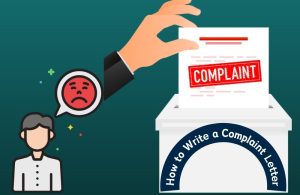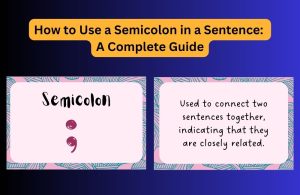Being able to negotiate is a valuable skill that can often help you get better deals. Knowing how to ask for a discount professionally and appropriately is important in business. This guide aims to provide practical strategies on how to ask for a discount on a quotation in English.
To ask for a discount on a quotation in English, maintain a polite and professional tone. Use phrases like “Could we discuss the possibility of a discount?” or “Is there any room for adjustment on the quoted price?” Being specific and providing reasonable justification can also help.
You may try Fifty Ways to Practice Writing: Tips for ESL/EFL Students to practice and improve writing with pen and paper and typing. By applying these methods, you will write more, write faster, and write more correct and more interesting papers and letters.
Remember that the specifics can vary greatly depending on the circumstances, your relationship with the seller, cultural nuances, and other factors. So, keep reading for a comprehensive guide, including different scenarios, effective negotiation strategies, responses to pushbacks, and a list of useful English phrases to use.
Table of Contents
- Understand the Situation
- 25 General English Phrases to ask for a discount on a Quotation
- Effective Ways to Ask for a Discount
- Sample Emails for Discount on a Quotation
- How to Respond to Pushback?
- Sample Conversation: Asking for a Discount on a Quotation in English
- Final Thoughts
- 10 Frequently Asked Questions Related to Asking for a Discount on a Quotation in English
Understand the Situation
Understanding the context of a quotation is a key starting point when asking for a discount. A quotation is not just a random number but a carefully calculated cost estimate considering various factors. These can range from the cost of materials or services, the time and labor involved, the seller’s profit margin, and the market price of the offered goods or services.
Before you negotiate a discount, having a deep understanding of what the quotation represents, and appreciating the work that has gone into it, can set the right tone for the ensuing conversation. This understanding will ensure you respect the other party’s professional efforts and give you a clearer picture of how much leeway there might be for a discount.
1. Respect the Quotation
Before diving into the negotiation, showing respect for the quotation is important. A price quote isn’t conjured out of thin air. It’s often the result of thorough calculations and market analysis, taking into account many factors that contribute to the final number you see. Being dismissive or disregarding this effort can start your negotiation off on the wrong foot.
Acknowledge the Effort
Acknowledge the effort that goes into providing the service or product. For example, “I can see you’ve put a lot of effort into offering a high-quality service/product.” This approach can create goodwill and make the seller more inclined to negotiate with you.
Understand the Costs
Understand the costs involved in providing the product or service. The quotation often covers labor, materials, overheads, and a reasonable profit margin. While some of these costs may be fixed, others may be flexible, which could be where your potential discount comes from.
2. Gauge the Market Rates
An important part of understanding the quotation is to have an idea of the current market rates for the product or service you’re purchasing.
Do Your Research
Before discussing a discount, ensure you’ve done your homework and understand what similar products or services typically cost. The internet can be a great source of this information, as can discussions with colleagues or peers in your industry. This will show you whether the quote is reasonable or inflated.
Compare Prices
Comparing prices from different providers can also give you an idea of how flexible the quoted price might be. If the quote is significantly higher than others are charging, there’s a higher chance of securing a discount.
3. Evaluate Your Position
Knowing your worth as a customer can greatly influence the discount you can ask for. If you’re a regular customer or you’ve had a long-term business relationship with the seller, this could be an advantage. Sellers often value customer loyalty and are willing to offer discounts to maintain a good relationship.
Assess Your Buying Power
If you’re making a significant purchase or placing a bulk order, this could also strengthen your position in asking for a discount. The higher the value of your order, the more likely the seller is to consider giving a discount to secure the business.
Armed with this understanding, you can approach the negotiation with respect for the quotation and a clear sense of your position and the market rates. This approach can significantly increase your chances of successfully securing a discount.
25 General English Phrases to ask for a discount on a Quotation
Mastering asking for a discount is useful, especially in business transactions. The right phrases can make your negotiation smoother and more successful. However, choosing these phrases requires understanding the situation, maintaining respect, and being aware of cultural and business norms.
To help you in this process, I’ve curated a list of 25 general English phrases you can use to ask for a discount on a quotation. Remember, it’s not just about the words you use but also the tone, context, and timing.
- Could we discuss the possibility of a discount on this quotation?
- I wonder if there’s any room for adjustment on the quoted price.
- Is there any chance we could look at a reduced rate?
- Could we consider a price revision?
- Would you be open to exploring a discounted rate?
- Considering the size of our order, could we discuss a volume discount?
- I appreciate your effort, but the price is a bit above our budget. Could we discuss this?
- Could we possibly negotiate a better price?
- We value your quality, but we’ve received lower quotes. Can we talk about the price?
- Is there a possibility of bringing down the price a little?
- Could we possibly discuss a 10% discount on the total quoted price?
- Would it be possible to revisit the quoted price?
- Could we talk about possibly reducing the cost?
- I was hoping we could negotiate the price.
- Given our regular business interactions, could we possibly discuss a loyalty discount?
- Considering market rates, could we negotiate the price a bit?
- I was wondering if we could discuss the price a bit.
- Is there an opportunity for a small discount?
- Given our long-standing business relationship, could we discuss a discount?
- Would there be any wiggle room on the price?
- How can we work together on the price to make this deal more beneficial for both parties?
- Could we explore the possibility of a discounted rate?
- Are there any discounts available that we could consider?
- Can we discuss a price that aligns more closely with our budget?
- Would it be possible to consider a discount due to our tight budget?
These phrases are not meant to be used verbatim. Instead, tailor them to suit your particular situation, the nature of your relationship with the seller, and the context of your conversation. Remember, asking for a discount should always be done respectfully and thoughtfully, with consideration for the seller’s circumstances and point of view.
Effective Ways to Ask for a Discount
After understanding the quotation’s context and respecting the effort that has gone into it, the next step is to strategize how to ask for a discount. The way you phrase your request can significantly impact the outcome of your negotiation. A well-phrased, polite, and respectful request is more likely to be considered positively than a brash or blunt demand.
The key is to maintain professionalism while clearly expressing your intention to discuss the possibility of a discount. This section will provide a comprehensive guide on effectively expressing your discount request, with easy-to-understand examples, useful phrases, and insightful strategies.
1. Use Polite Language
Using polite and respectful language lays the foundation for a fruitful negotiation. It shows the seller that you appreciate their work and helps to maintain a positive business relationship. Here are some examples of polite phrases you can use to initiate the discussion about a discount:
- I wonder if there’s any flexibility on the price?
- Could we possibly discuss a discount?
- Would it be possible to revisit the quoted price?
- Is there any room for a slight reduction?
- Could we explore the possibility of a discounted rate?
- I was hoping we could talk about the pricing.
- Would there be any wiggle room on the price?
- Is there a possibility of adjusting the price a little?
- I appreciate your effort, but the price is a bit above our budget.
- Would you be open to a discussion about the price?
- Could we consider a price revision?
- Is there an opportunity for a small discount?
- Could we talk about possibly reducing the cost?
- I was wondering if we could discuss the price a bit.
- Are there any discounts available that we could consider?
2. Be Specific
While being polite is important, you also need to be clear and specific in your request. Ambiguity might lead to confusion and may not give you the result you desire.
Quantify Your Request
Quantifying your request involves stating the exact discount you’re hoping for. This shows that you’ve given the matter thought and makes it easier for the seller to decide. Here are some phrases that you can use to quantify your discount request:
- Could we possibly discuss a 10% discount on the total quoted price?
- Considering the size of the order, could we look at a 15% reduction?
- Given our long-term relationship, could we explore a 20% loyalty discount?
- Could we possibly negotiate a discount of $500?
- Could we consider a fixed reduction of $1000 from the total cost?
- Could we talk about reducing the price by 5%?
- Would it be possible to consider a discount of 25%?
- Could we explore a flat discount of $200 on the quotation?
- I wonder if a 10% price reduction would be feasible.
- Could we negotiate a price reduction of 30% due to the large volume of our order?
Give Reasonable Justification
Providing a legitimate reason for your discount request is equally important. It shows the seller that your request is not arbitrary and has a solid basis. Here are some examples of justification phrases for a discount:
- Given our long-standing business relationship, could we discuss a discount?
- Considering the size of our order, would a volume discount be possible?
- We’re planning on being regular clients, can we discuss a loyalty discount?
- Due to our tight budget, can we discuss a small price reduction?
- We’ve received lower quotes, but we value your quality. Can we discuss the price?
- Considering market rates, could we negotiate the price a bit?
- As we are a start-up, a small discount would greatly help us.
3. Use Open-Ended Questions
Open-ended questions are a powerful tool in negotiation. These questions facilitate dialogue and enable you to discuss the price rather than receiving a flat ‘yes’ or ‘no’ response. Here are a few examples of open-ended questions you can use during your negotiation:
- How can we work together on the price to make this deal more beneficial for both parties?
- What kind of discount can we expect for a bulk purchase?
- How could we adjust the price to align more closely with our budget?
- What possibilities are there for reducing the price without compromising on quality?
- How can we make this quotation more suitable for our budget constraints?
By effectively utilizing polite language, being specific in your request, and encouraging open-ended dialogue, you can significantly increase your chances of receiving a favorable response to your discount request. Remember, negotiation is a two-way street, and understanding the seller’s perspective is just as important as putting forth your own.
Sample Emails for Discount on a Quotation
Writing an email to request a discount on a quotation requires a delicate balance of politeness, respect, and persuasion. You want to express your interest in the product or service, justify your request for a discount, and keep the lines of communication open for further negotiation. Below, we provide three sample emails that can be adapted for different situations. Remember, these are just templates. Feel free to modify them to suit your needs and the specific dynamics of your business relationship.
Sample Email 1: For Long-Standing Customers
Subject: Request for Discount on Quotation for [Product/Service]
Dear [Seller’s Name],
I hope this email finds you well. We have been using your [Product/Service] for [Time Period] and are extremely satisfied with the quality and reliability.
Recently, we received your quotation for [Product/Service] with a total amount of [Quoted Amount]. Given our ongoing and fruitful business relationship, we were wondering if we could discuss a loyalty discount on this quotation.
We believe that a discounted rate could enhance our long-standing business partnership and assure our continued collaboration in the future. We’re keen to discuss this further at a time that suits you best.
Looking forward to your positive response.
Best Regards, [Your Name]
Sample Email 2: For Large Orders
Subject: Discount Inquiry for Bulk Order Quotation
Dear [Seller’s Name],
I trust this message finds you well. We are considering a large order of your [Product/Service], as specified in your recent quotation.
Considering the size and value of this order, we wonder if there might be a possibility to negotiate a bulk discount. This would help us stay within our budget and ensure more frequent and larger orders from our end in the future.
Please let us know your thoughts on this matter. We look forward to hearing from you soon.
Warm Regards, [Your Name]
Sample Email 3: For New Customers
Subject: Request for Discount on Quotation
Dear [Seller’s Name],
I hope you’re doing well. We are very interested in your [Product/Service] and have reviewed your quotation.
We are eager to establish a mutually beneficial business relationship as a new customer. However, the current quoted price is slightly above our budget. We were wondering if there’s any possibility for a discount or flexible pricing that would enable us to proceed with this purchase.
We are open to discussing this further and finding a solution that could work for both of us.
Thank you for your time and consideration.
Kind Regards, [Your Name]
How to Respond to Pushback?
Negotiations are not always successful on the first attempt, and you may encounter some pushback or outright rejection when you ask for a discount. In such situations, your response can significantly impact the overall outcome and the nature of your relationship with the seller.
The key is to remain professional, respectful, and open to revisiting the conversation when the circumstances are more favorable. This section will guide you on handling rejection, maintaining a professional demeanor, and strategically revisiting the conversation.
1. Maintain Professionalism
When dealing with a negative response or pushback, keeping your emotions in check and maintaining a high level of professionalism is critical. While it’s normal to feel disappointed, expressing this disappointment in an unprofessional manner could harm your relationship with the seller.
Responding Professionally to Rejection
The best way to handle rejection is to show understanding and continue the dialogue in a positive manner. For instance, you could respond with, “I understand your perspective. Can we explore other ways to make this deal more cost-effective?” This way, you demonstrate respect for the seller’s decision and express your willingness to find a mutually beneficial solution.
Here are some examples of phrases you can use to maintain professionalism in the face of pushback:
- I understand your position and respect your decision.
- I see where you’re coming from. Can we think of alternatives that would help reduce costs?
- I appreciate your perspective. Could we revisit this conversation in the future?
- I understand your stance. Can we look at other options for cost reduction?
- I value our business relationship and respect your decision. Could we discuss potential ways to make this deal work?
2. Revisit the Conversation Later
Not all negotiations are successful initially. However, this doesn’t mean the conversation is over forever. Sometimes, the timing might not be right, or the seller might need to see more commitment from your side before considering a discount.
Strategic Revisiting of Discount Conversation
It’s perfectly acceptable, and sometimes even advisable, to revisit the discount conversation at a later date. Perhaps after you’ve made several purchases, shown loyalty as a customer, or when market dynamics shift favorably. You can say, “I understand the constraints at the moment. Could we possibly revisit this topic in the future?”
Below are a few phrases that can be used to suggest revisiting the conversation:
- Can we return to this discussion at a later date?
- Perhaps we could reevaluate the situation in a few months?
- Could we reconsider the pricing structure after we’ve placed a few more orders?
- Maybe we can revisit the discount conversation in the next fiscal year?
- Would it be possible to discuss discounts once our business volume increases?
The way you respond to pushback can greatly influence the future course of your relationship with the seller and the outcome of your negotiations. Being understanding, respectful, and willing to revisit the conversation can often turn an initial “no” into a future “yes”. Successful negotiations are often about building and maintaining strong, respectful relationships.
Sample Conversation: Asking for a Discount on a Quotation in English
Situation: Sarah, a business owner, has received a quotation from Mark, a supplier, for office furniture. She is hoping to negotiate for a better price.
Sarah: Hi Mark, I’ve reviewed the quotation you sent over for the office furniture. Everything looks great, but I was wondering if there’s any room for negotiation on the pricing?
Mark: Hi Sarah, I’m glad you found the quotation satisfactory. We always strive to offer competitive prices. How much of a discount were you hoping for?
Sarah: Given the volume of furniture I’m considering ordering, would it be possible to get a 10% discount?
Mark: I appreciate the large order you’re placing with us. Let me see what I can do. How about a 7% discount?
Sarah: That sounds more reasonable. Could you also consider waiving the delivery charges? It would really help in finalizing this deal.
Mark: Alright, considering the volume of your order, I can waive the delivery charges. Does that work for you?
Sarah: That’s great, Mark. Thank you for understanding. Let’s proceed with that.
Final Thoughts
Negotiating a discount on a quotation in English is a delicate task that requires politeness, respect, and tact. This guide provides a broad understanding of the process, from understanding the quotation to requesting the discount, dealing with pushbacks, and maintaining a professional relationship.
The key is to be respectful and considerate, considering that the seller also has a business to run. Remember, the goal of any negotiation should be to reach an agreement that is beneficial to all parties involved. By applying these principles and using the suggested phrases appropriately, you’re well on your way to becoming an expert negotiator.
10 Frequently Asked Questions Related to Asking for a Discount on a Quotation in English
1. What are some polite phrases to start a discount negotiation?
Phrases like “Is there any flexibility on the price?”, “Could we discuss the pricing a bit?”, or “I was hoping we could negotiate the quoted amount” are polite ways to initiate the conversation.
2. Is it common to ask for discounts on quotations?
Yes, in many business settings, it’s customary to negotiate prices, especially for bulk orders or long-term contracts.
3. How can I justify my request for a discount?
Highlighting factors like volume of purchase, repeat business, market comparisons, or budget constraints can be valid reasons to request a discount.
4. What if the supplier declines to offer a discount?
It’s essential to be understanding and respectful. You can ask if there are any alternative solutions or consider other suppliers.
5. How can I respond if the offered discount is less than what I expected?
You can counteroffer with phrases like “Could we meet in the middle?” or “How about a compromise at [specific percentage]?”
6. Are there other benefits I can negotiate besides a discount?
Yes, you can discuss waiving additional fees, getting extended payment terms, freebies, or other value-added services.
7. Is it essential to get the revised quotation in writing?
Absolutely. Always ensure any changes to the original quotation, including discounts, are documented to avoid misunderstandings.
8. Can I ask for a discount even if the quotation meets my budget?
While it’s possible, always approach negotiations with integrity. If the quoted price is fair and within your budget, unnecessary haggling might not be well-received.
9. How should I approach the conversation if I find the quotation significantly higher than market rates?
Politely mention your findings, provide any evidence if possible, and ask if there’s a specific reason for the higher quote. This opens the door for a constructive discussion.
10. Should I express gratitude after a successful negotiation?
Yes, always thank the supplier for their understanding and flexibility. Building and maintaining good business relationships is crucial.






